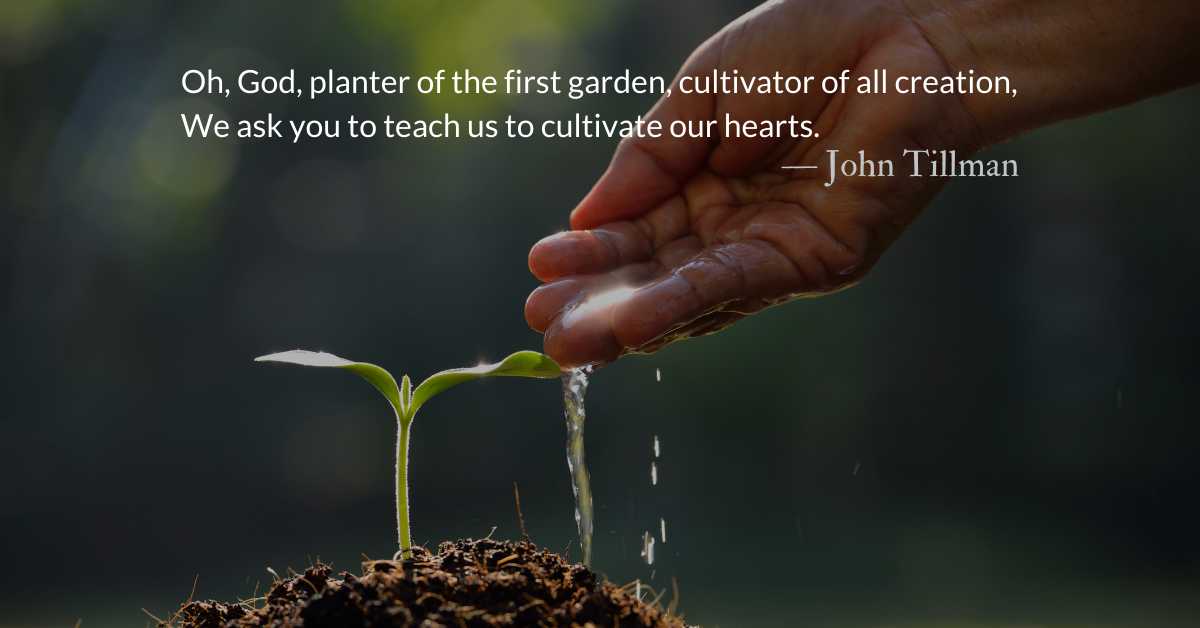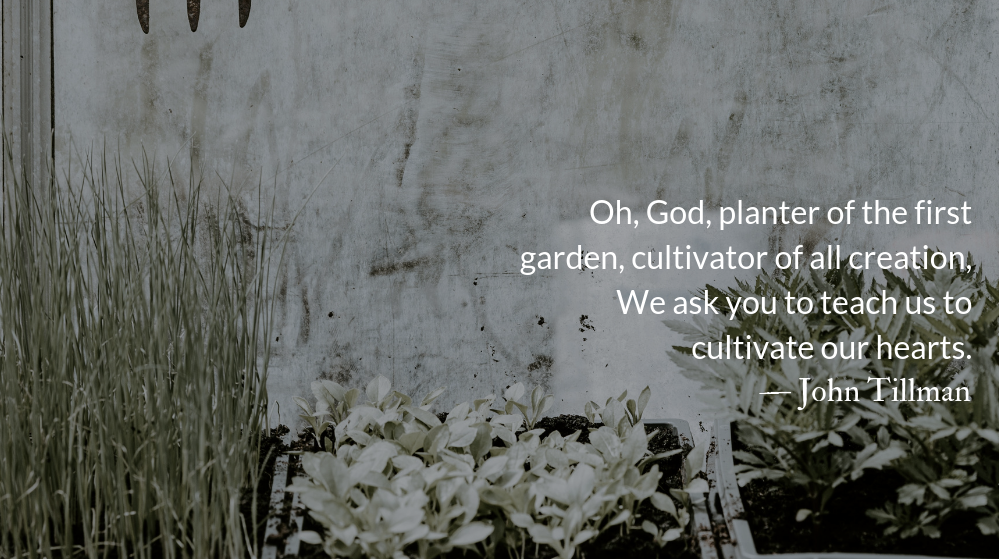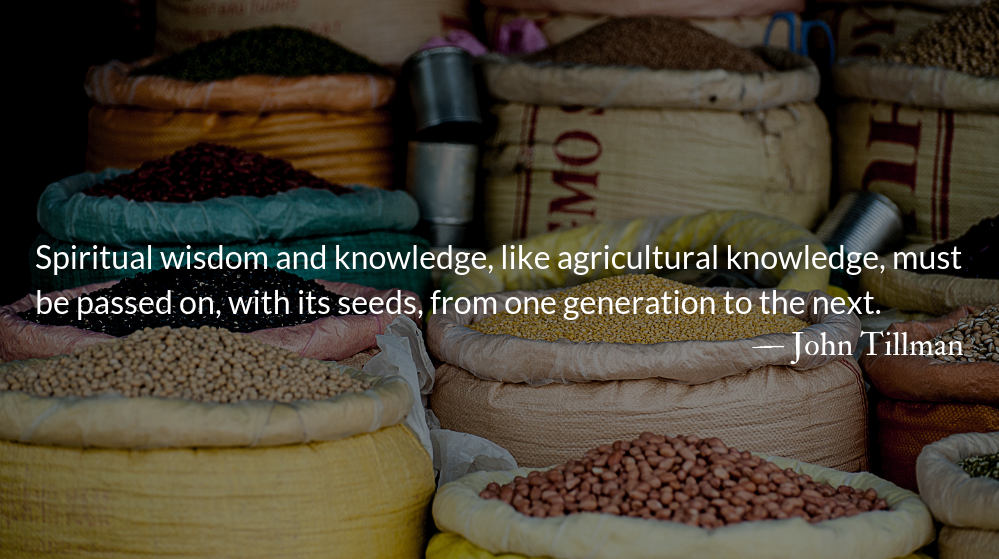Scripture Focus: Matthew 15.13
He replied, “Every plant that my heavenly Father has not planted will be pulled up by the roots.”
From John: Yesterday and today, we are looking back at some posts from 2019 about the spiritual work of cultivating a deep spiritual life of growth and discipleship.
Reflection: For Sustainable Cultivation—Guided Prayer
By John Tillman
A growing faith that produces a sustainable harvest is one that is cultivated.
Faith that produces harvest is supernatural. It has a purposeful and planned rhythm. It starts with the destruction of clearing obstacles. It continues with protection and tender care for the young plants. It multiplies with growth and harvest that is shared among community. It propagates through seeds of knowledge, passed on for the next generation of growth.
As we conclude (for now) our series on cultivating faith, we pray over our hearts (our fields) some scriptures from today’s readings.
A Prayer to the Sustainer of Faith
Oh, God, planter of the first garden, cultivator of all creation,
We ask you to teach us to cultivate our hearts.
Isaiah was right when he prophesied about you:
“‘These people honor me with their lips,
but their hearts are far from me.
They worship me in vain;
their teachings are merely human rules.’”
We do not want our hearts to be far from you, Lord.
We do not wish to cultivate a system of human rules,
But a harvest of the fruit of your Spirit.
But the things that come out of a person’s mouth come from the heart, and these defile them. For out of the heart come evil thoughts—murder, adultery, sexual immorality, theft, false testimony, slander.
You have taught us, Lord, that the fruits of our actions spring from our hearts.
Our hearts are the fields that we must till and tend.
He replied, “Every plant that my heavenly Father has not planted will be pulled up by the roots.
Help us, Lord, to resist the urge to weed someone else’s field.
We pray that you would send us, Lord, first into the field of our own hearts.
To pull up the stones.
To burn out the crops of selfishness.
To pull up by the roots our callousness.
To nourish the good seed of the gospel.
To share the harvest in celebration.
Only then, Lord, will be able to give freely to our neighbors of the seed that you have planted in us.
We echo the cry of the outcast Syro-Phonecian woman, Lord.
Lord, Son of David, have mercy on me!
We are desperate for a crumb of the harvest of the gospel.
And we long to hear you answer,
You have great faith! Your request is granted.
Divine Hours Prayer: The Call to Prayer
Search for the Lord and his strength; continually seek his face. — Psalm 105.4
– Divine Hours prayers from The Divine Hours: Prayers for Autumn and Wintertime by Phyllis Tickle
Today’s Readings
Genesis 16 (Listen – 2:18)
Matthew 15 (Listen – 4:23)
This Weekend’s Readings
Genesis 17 (Listen – 4:02) Matthew 16 (Listen – 3:43)
Genesis 18 (Listen – 4:59) Matthew 17 (Listen – 3:46)
Read more about Cultivation Requires Planning
Do you have a plan to cultivate your spiritual growth?
Read more about Cultivation Starts With Destruction
May the scripture help us to plow up and destroy the cultural idols, trends, teachings, and brands that hinder our growth.









